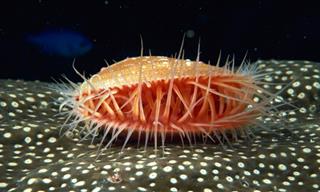It is estimated that almost 10 million people die from cancer annually. Even with the widespread advancements we've made in science and technology, the complete cure for cancer has eluded humankind for long. What’s worse, it’s not just humans who are suffering from this disease. You would be surprised to know that the mortality rate in the animal kingdom due to cancer is quite similar to that of humans.
A lot of you must be aware that pet dogs and cats are often diagnosed with various forms of cancer. Wild animals get cancer, too. Tasmanian devils, sea lions, beluga whales, among others, often die as a result of being afflicted with this disease.
One animal, however, doesn’t seem to get cancer that often – the elephant. In fact, only about 5% of elephants die from cancer. This is remarkably low for an animal that is so large in size.

Can elephants provide the solution to fight cancer?
Elephants, the giants of the wild, have an average life span of 60-70 years, which is considered unusual for an animal that is so large. If we go by statistics, bigger animals have more cells, and hence, should have greater occurrences of cancer. This is simply because their cells are dividing so quickly they should just have really high rates of mutation and cancer. But that isn’t the case with elephants. This phenomenon is called “Peto’s paradox”, named after the scientist Richard Peto, who observed that cancer prevalence is not correlated with body size.
The “zombie gene” and how it helps elephants remain largely cancer-free
Now, a new study has offered clues in regard to the elephant's apparent immunity to cancer, which could lead to being a breakthrough from a medical standpoint. Apparently, elephants have, what researchers are saying, a “zombie gene”. In other words, these animals have extra copies of two cancer-fighting genes. Firstly, there is P53, which hunts for cells with miscopied DNA. The other and more significant one is Leukemia Inhibitory Factor or LIF – a gene that eliminates the mutated cells before they can form a tumor.

Interestingly, a majority of mammals have one copy of LIF. But elephants have 7 to 11 of them. The one that is doing the job for these giant mammals appears to be Leukemia Inhibitory Factor Pseudogene or LIF6. So far, this has only been found in elephants, and this is what scientists believe is helping their bodies remain mostly cancer-free.
On checking the evolutionary record of these animals, it was later discovered that the LIF6 had actually become inactive in elephant DNA millions of years ago. Curiously, though, it then mysteriously resurrected itself. Initially, it was a broken and useless gene. However, as the elephants evolved, so did the genes, and the LIF6 managed to reawaken in them as a working “zombie gene”.
How the LIF6 gene works in elephants
To illustrate the significance of the LIF6 gene, scientists carried out lab experiments where they caused DNA damage to African elephant cells. The damage appeared to trigger P53 to turn on the LIF6 gene which then went on to destroy the impaired cells. Furthermore, when the LIF6 was prevented from functioning, the elephant-specific sensitivity to cell damage seemed to disappear.
Take a look at this video below to understand more about the "zombie gene".
Scientists also believe that the LIF6 gene is not the only one keeping cancer in check in elephants. “LIF6 is playing a small part in a broader process,” says Vincent Lynch, an evolutionary biologist at the University of Chicago. Joshua Schiffman, a pediatric oncologist at the University of Utah, agrees, and adds: “there are almost certainly going to be other findings as well.”
In 2018, a team of scientists published a study that laid emphasis on another set of genes that helps in repairing broken elephant DNA instead of killing damaged cells. Further studies are being conducted in this regard which could lead to significant breakthroughs in understanding how the elephant remains largely immune to cancer.
Importance of P53 - the tumor-suppressing gene in elephants
Meanwhile, the importance of the tumor-suppressing gene P53 in elephants cannot be undermined, too. Before the LIF6 gene was discovered, scientists believed that it was P53 that helped elephants remain mostly cancer-free. In 2015, Schiffman and his team had published a paper that found that elephants have extra copies of P53. Humans have one copy of this gene while elephants have 20.

“P53 can recognize DNA damage and then go, ‘OK what are our options?’” explains Amy Boddy, a biologist at the University of California, Santa Barbara. Cells that have normal issues can be repaired. However, the ones with severe damage become prone to cancer. This is where the P53 steps in and orders those cells to be killed in elephants. Furthermore, P53 also stops the cell from proliferating. That gives it the time to repair itself when damaged.
Thus, with these two super genes – the P53 and the LIF6 – the elephant has managed to fight off cancer for so long.
What does this mean for humans?
Bowhead whales and blind mole rats are some of the other animals in the wild who have managed to found ways to live long lives without suffering from this dreaded disease. Perhaps, the more we understand about the basic biology of all these animals, the more it would help humans in the longer run.
Currently, scientists are working with pediatric oncologists, the zoo, and the circus to learn from elephants. The ultimate goal is to attain a complete understanding of the elephants’ defense mechanism against cancer and to use it in the cancer treatments for humans.
Related Articles:
These 3 Creepy Animals Can Save Human Lives
Why Pets Are Great For Your Mental and Physical Health
Can Dogs Really Smell Cancer?
African Killifish May Hold the Key to Human Longevity
 Go to BabaMail
Go to BabaMail
























































